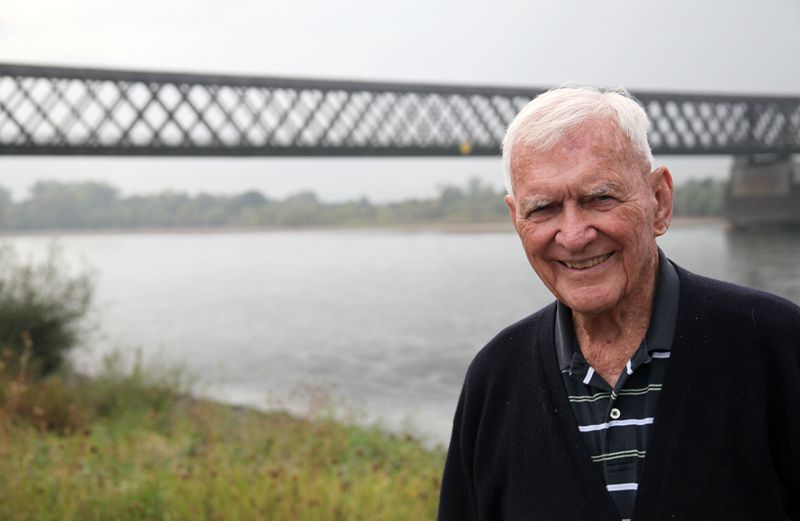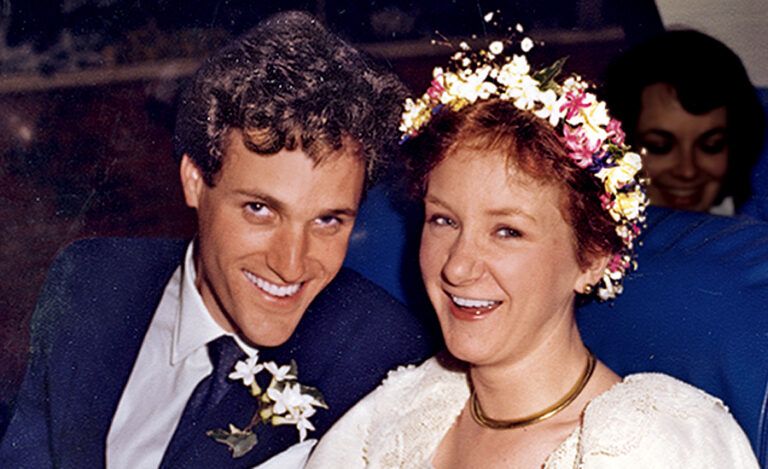The narrow underpass through the mossy embankment was still there, train tracks running on top and its formidable stone walls a bit weathered with time. General Albin Irzyk marveled at how much in the French town of Voellerdingen had changed in 65 years, yet this remained, practically untouched.
A 30-year Army veteran, a recipient of the Distinguished Service Cross, a tank battalion commander under General George S. Patton in World War II, and now a grandfather, he’d returned here with his family to show them the source of a mystery that still haunted him.
At times he replayed the battle in his mind, and wondered if it had actually transpired the way he remembered. Because what had happened was inexplicable.
On December 5, 1944, just before the Battle of the Bulge, the 27-year-old Irzyk was ordered to capture Voellerdingen, a heavily defended town, and its bridge over the Eichel River, establishing a bridgehead so Patton’s Army could push on to Berlin.
In the darkness, from the hill above the town, all Irzyk could see were two church steeples. He said a prayer, issued his command and slowly the tanks rumbled downhill—only to discover that an embankment blocked the way to the river.
The sole underpass was so narrow only one tank could fit through at a time. And almost certainly it was wired with explosives. That was the Germans’ procedure for their retreating forces. Going through would be suicidal, but Irzyk had his orders—from General Patton, no less.
The fighting was intense. Allied artillery offered heavy cover for Irzyk’s tanks. The moment came and he led the battalion forward from the lead tank. Inexplicably, the column rolled safely through the underpass, single file, until every tank made it to the river’s edge.
The Germans withdrew and the Americans secured the bridgehead. One more victory in that brutal last winter of war. One battle closer to Berlin.
Now Irzyk doubted there was anyone in Voellerdingen who still remembered. The war seemed so long ago. He himself was 92. He tried to explain to his grandkids what a miracle it had been.
He gestured toward the two church steeples. He pointed out the German positions, described how surprised they seemed at the tanks’ swift passage through the underpass. It was unthinkable that they’d neglected to wire it.
“It should have blown sky-high,” he said. A white-haired woman appeared from the doorway of a house nearby. She walked toward the family, stooped by age and work. Maybe she remembered. She looked about Irzyk’s age.
She introduced herself in heavily accented English. When Irzyk told her he’d commanded the U.S. battalion there, she looked astonished. With great courtesy, she insisted that he and his family come to her house. “I have a story to tell you,” she said, “one I’ve waited to tell for sixty-five years.”
Intrigued, they followed the woman inside. She poured them tea and began her tale: “I was a girl when the Germans invaded. I remember their uniforms, their voices, their heavy footsteps, their guns. We were afraid, but we never lost hope.
“Then we heard that the Americans were coming. We were joyful. But we saw the Nazis wire the underpass with explosives. A deadly trap.”
So there had been explosives! Irzyk’s eyes widened. Why hadn’t they gone off?
“My father came up with a plan,” the woman continued. “It was very risky, but we had to do something. That evening Papa invited the Germans inside. Perhaps they would like something to drink? Something to warm them up? He offered his best schnapps. Surely a glass or two wouldn’t hurt?”
Her father poured them glass after glass, led them in drinking games, listened to their songs, their stories. “At one point Papa gave a signal to Mama and me. We spread sheets on the hay in the barn. They were so drunk they slept right there.
“That’s when Papa rushed to the river and clipped the wires to the explosives. The Germans never noticed. The next day, you arrived to liberate us.”
Albin Irzyk, soldier, veteran, grandfather, looked at the old woman in wonder. Finally the mystery was solved. Standing before him, improbably, was a woman who had helped save his life and the lives of his men a lifetime ago. His eyes filled with tears and he embraced her like a comrade in arms.
In those dark final days of World War II, a simple French farm family had risked it all to do the right thing.
Download your FREE ebook, Mysterious Ways: 9 Inspiring Stories that Show Evidence of God's Love and God's Grace






